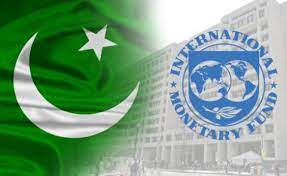Islamabad May 30 2022: Pakistan’s government is unable to secure funding from the global bond market and commercial banks, making it even more important to secure an agreement with the International Monetary Fund, Finance Minister Miftah Ismail said.
Pakistan’s dollar bonds, which reached a record low this month, gained on Friday after the government raised fuel prices, a key benchmark for the IMF to resume its loan program. Pakistan is seeking to secure a staff-level agreement with the fund in June.
“All roads lead to the IMF,” Ismail said Saturday to a virtual conference. “Saudi Arabia and other countries are all ready to give money, but all of them say we need to go to the IMF first.”
Former Prime Minister Imran Khan reduced and froze fuel prices, stalling the $6 billion bailout program. His successor Shehbaz Sharif, who took office in April, banned luxury imports and the central bank raised borrowing costs more than expected this month to deal with all-time high imports.
Pakistan needs about $36 billion to $37 billion in financing for the fiscal year starting June, said Ismail. An IMF deal would help secure funds from other sources such as the World Bank and friendly nations including China.
Ismail ruled out raising funds from the global bond market and foreign commercial banks that have given short-term loans in the past. The decision was made after the nation is said to have picked banks JPMorgan Chase & Co., Citigroup Inc., Standard Chartered Plc and Credit Suisse Group AG to manage any bond sale.
The financing will help Pakistan increase its foreign exchange reserves to about $15 billion next fiscal year from about $10 billion. Pakistan faces $3.2 billion in dollar debt due this year, the highest amount in the next decade, according to data compiled by Bloomberg.
Pakistan’s financing needs will be comfortable if the nation secures the IMF program, acting central bank governor Murtaza Syed told investors and analysts last week.











